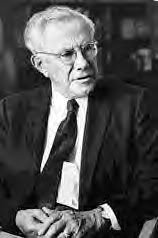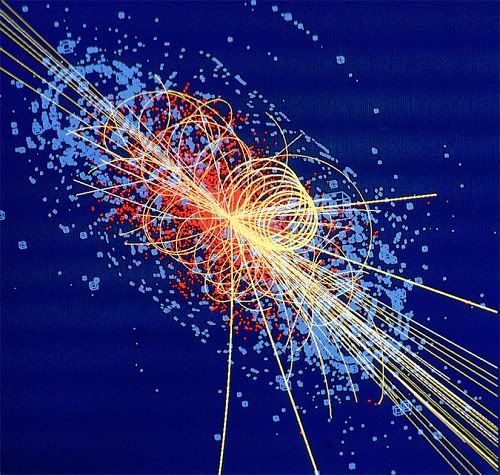Have theology, Will Argue
Hallquist is a blogger, I can't find any credentials for him but he seems to have the attention of a lot of atheists. His blob is "the Uncredible Hallq." An atheist on my boards put up a file of some kind with an article by him in it, in which he says "there are no good God arguments."
I am unable to copy statements from it except by hand. So I have to just summarize what it says. Therefore I will just present a list of observations going down the page. I wont do all of it now but stop with enough to indicate the basis for this statement and its' debunking.
(1) there are so many and they differ as to which one's are the best.
(the source wont let me copy and paste the quote so you are going to look for statements in the source to back up these observations.
He argues that no matter what arguments you deal with some one will say he didn't deal with the best ones. that's not a valid reason to assert there are none.
(a) nothing about that proves that there are no good arguments, it's just as easily the case that there he's not listening to the best critics.
(b) there are obviously some arguments that have endured, the big five, most all theists will agree are the best. That is a slip shod and "weaselly" way out.
I've explained why where are as many arguments as there are individual believers. The reason is becasue belief in God is more than just adding the fact of a being to the universe, it's a realization about the nature of being and one's place in it. It's a very personal first order kind of realization it's something you can't prove or argue about but once you have it you can't doubt it. That constitutions a category of knowledge that is totally alien to the atheist and which contracts and directly challenges their ideology of reductionism at it's core. See my essay on the matter.
(2) He quotes other atheist authorities saying the arguemnts are "flimsy (Dennett) but they really say which one's or why.
he quotes Dennett syaing some arguemnts should be laughed at, but ot which ones. that opens the door and gives permission to the atheist movement as a whole to mock and ridicule as they wish becuase any time they do so they can always say "he didn't specify so this one (whichever one he's mocking) must be it." All he's really doing is using argument form incredulity. which as I have pointed out before is the only real argument atheists have.
(3) now we come to the meat, he takes Bill O'Reilly's argument.
wow, we are going for the big guns. the great internationally famous expert on God and talking right-wing head Bill O'Reilly! wow! roll over Aristotle. Of course arguemnt is some drivel about "how could we luck out and come to exist?" Sort of a design argument. He's really taking on the big guns.
where's his criticism of Antiquarians? Where's his critique of Schleiemrmacher? Where is his critique of Hartshorne?
(4) He asserts that God arguments privilege the Hypothesis.
Now I've written endlessly on how atheists privilege their view point. they insist that the atheist assumption has to be the only way to think if you don't accept it then you are stupid you are a creationist and your privileging! this is all he's doing.
His reasoning on this is based upon an attempt to turn the tables and make criticisms of science as incomplete and unable to penetrate the realms of metaphysics into a God of gaps argument. What he has to be saying in orde to make this arguemnt is that if you don't privilege reductions and materialism in the form of scinece that he think thinks gives him the fortress of facts then you are automatically privileging God hypothesis. so faith can never be the standard, it has to be atheist thinking that is the standard then the argument has to disprove it.
that's just backwards reasoning. If he advances scinece as a means of explain away god then he must prove that science explains away all fa cites of reality, he can't assume that all other facets of reality are automatically suspect and only the materialist view is valid. He can't justify beginning from an atheist assumption.
what about starting from a neutral perspective? that seems to be a prospect that totally alludes this guy. Let's look at the biased stupidity with which this guy thinks:
"someone who spends all day thinking about weather the Trinity does or does not exist rather than Allah, or Thor or the flying spaghetti monster is more than half way to Christianity..." In other words Chrsitains are hopelessly stupid and you shouldn't even think about Christian stuff or your brains will rot and you'll be an idiot. Of course it just completely alludes him that someone who spends all day thinking about weather or not the Trinity exists, has thought about it much more than he has and might just have a good reason to think it does.
(5) of course he takes on Argument form design
that's always a popular one to mess with because they have some inherent flaws. I don't even us regular design arguments for that reason. He doesn't deal with any good source of the fine tuning argument.He does admit that writers like Clarke and Aquinas older writers avoid the problem he discusses. The problems he discusses are his own ignorance, such as "approaching something that sounds like God and stopping." this is the work of a man you does not understand the logical concept of identity or the way in which mutual exclusivity can establish identity. He's totally unaware of Spinoza's argument about the triangle or his version of the OA or of the way in which Hartshorne's modal argument establishes God's identity as necessary.
(6) he does try to deal with Ananias.
His major argument against Aquinas and Clarke is that believers today don't use their arguments. This is of cousre nonsense and his own ignorance becuase the work of Craig and Plantinga are based upon those early thinkers in big ways). If it were true that they don't use them it would not prove anything it's merely arguemnt form popularity. His statement was that there are no good God arguments I assume means that retro-actively, he doesn't mean there are none form the past that aren't used any more. He admits these don't have the disadvantages he's talked about they are just not understood by modern believers, which is hog wash. It's also irrelevant Hogwash.
He chalks it up to the idea that their assumptions aren't accepted anymore. That's not true either beaus the school or neo-thomism updated the assumptions of Aquinas and brought them into the 20th century. It has well been established that Thomistic logic could be used in modern thought and it would fit right in, adding certain categories no longer used but not contradicting the core of modern logic. One could could use Thomistic logic and do scinece and go to the moon with it.
When he actually tries to prove that Aquinas makes bad arguemnts it's obvious his standard is that it's a bad argument if it disproves some aspect of reality that he needs to justify atheism. Case in point Ananias' argument agaisnt infinite regress. Aquinas argues that causes which are crucial in the series being removed would mean the series no longer functions becuase the crucial link is missing.Hallquist argues that Aquinas is assuming causes are simultaneous with their effects. That's not really an issue. That has nothing to do with the success or failure of the argument, he does assume this based upon the possibility of an eternal contingency. one must assume eternal contingency (the universe contingent upon God) becuase we have no really knowledge that it's not mountainous with the cause.
For basically Hallquist just deciliters the arguments no good: "how does taking away the first cause in a finite chain prove there's something special about first causes?" Not knowing that odalisques him as having a right to discuss the argumetns. Obviously you have a finite chain and a first cause then removal of first cause would mean nothing would come after it, thus no chain. I think would make it pretty special. His ratioanl for it not being special is that if you remove a cause from the middle of the chain then all the stuff after it goes. that means the middle just as important as the end. Well that's only true if you think half a chain is no better than no chain at all. I would think that since half a chain is soemthing and no chain is nothing half a chain would be more important. But even so that' snot the issue. the issue is do we laud the first with honor becuase it's first? Or does it have a more important place in giving us the reaosn to think there has to be a creator?
From that point he starts attacking William Lane Craig. This is a very courtesy and shallow treatment of Aquinas. He doesn't' even grasp the basics of Thomistic thinking. IN fact he never states the arguments in a coherent way. In connecting it to Craig (who the atheist just love to bad mouth weather they understand him or not) he just creates the notion of guilt by association but of course never points out the crucial difference in Aquinas CA and Crag's which is that th latter is the Kalam arguemnt and the former is not. Thus Aquinas never has to make good on the founding assumption that "whatever begins to exist has to have a cause" and that's why Aquinas assumes cause and effect could be simultaneous (in the case of eternity). This is enough to show that the original statement is crap.
Hallquist's dealing with God argument is childish, shallow, foolish, armature and sloppy. He clearly has no background in the things he discusses. The statements there are no good God arguemnt is pure rubbish.
It's just what I"ve always said that atheist simply do not want to know the truth so they don't listen they just wont listen when we try to explain why we believe. When we beat them in argument they get angry becuase they can't stop it because they refuse to learn. The they just start making declarations which they can't back up bad mouthing arguments they don't understand.




Again this is guilt by association. Catholics are half the Christians and Priests are a tiny percentage of Catholics. You are trying to blame religion itself. When we blame atheism for the crimes of communism, that's a fallacy. that is so unfair one must not do that. Can't you see its the same exactly logic? It is. if you don't see that you dont' see any logic. Some people who ware this label do X, therefore, all people who wear this label are guilty of X and therefore the label itself causes the doing of X. That's all crap.